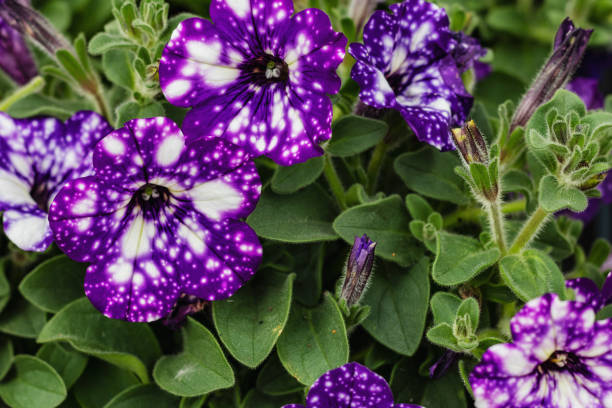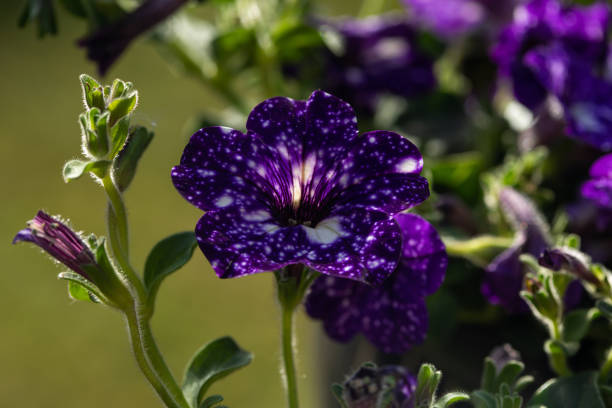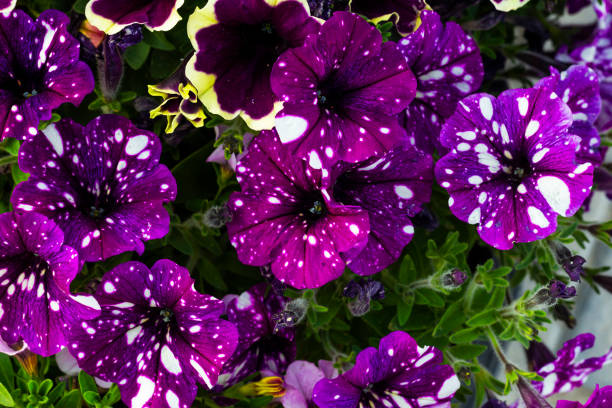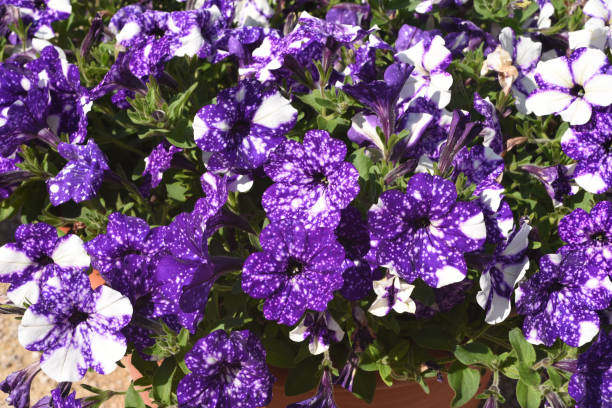Petunia plants come in an array of wonderful colours but the night sky petunias might be just the most breathtaking. With big blooms in shades of deep purple, red or burgundy they create an effect of the beautiful starry night sky. Here’s everything you need to know about growing night sky petunias in your garden.

Image Credit: Pexels
The secret to growing night sky petunia
Full sun exposure is important for vibrant blooms. Like most plants, proper watering is crucial. Keep the soil consistently moist but avoid clogging the roots, which can cause root rot. Plant night sky petunias in an area with rich, well-drained soil. Whether you’re planting them in the ground or a container water them properly. These ornamental flowering plants require at least five hours of sunlight per day.
They thrive best and produce the most flowers when exposed to full sunlight. Night sky petunias planted in shady areas will bear fewer flowers, missing the full effect they can have. These plants can tolerate high temperatures but will not survive frost, as they are not hardy plants and only thrive in warm areas. By understanding your petunia and its needs your plant will grow happily and produce vibrant, blooming flowers.

Image Credit: Unsplash
Care tips for night sky petunias
With many plants, they need good care for them to flourish. The petunia is easy to care for and will need little or special attention. The Night Sky will grow best in an area that is sheltered from wind exposure.
- Feed your flower
Fertilize at 1–2 times a month using a good organic fertilizer. This will help your plant keep producing flowers which is the end goal. If you grow your flowers from containers a good every three weeks works well enough.
- Good ample lighting
They perform better when located in full sun all day.
- Watering well
Provide plenty of water so it does not dry out. Water well especially during extreme hot and dry times.
- Prune them well
To keep them growing and flourishing with new flowers. Prune your flowers by deadheading them. Deadheading is to remove the old growth from your flower allowing for new growth and re-flowering. The good occasional deadheading will provide an even bigger boost to flower production.

Image Credit: Unsplash
Like many other plants they are susceptible to issues like insects, so be on the lookout for any insect damage to your flowers. Understand night sky petunias are annuals, so they’ll last for one growing season and die back in winter.
ALSO SEE:
Feature Image: Unsplash


